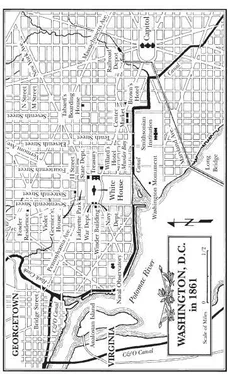John Miller - The First Assassin
Здесь есть возможность читать онлайн «John Miller - The First Assassin» весь текст электронной книги совершенно бесплатно (целиком полную версию без сокращений). В некоторых случаях можно слушать аудио, скачать через торрент в формате fb2 и присутствует краткое содержание. Жанр: Исторический детектив, на английском языке. Описание произведения, (предисловие) а так же отзывы посетителей доступны на портале библиотеки ЛибКат.
- Название:The First Assassin
- Автор:
- Жанр:
- Год:неизвестен
- ISBN:нет данных
- Рейтинг книги:3 / 5. Голосов: 1
-
Избранное:Добавить в избранное
- Отзывы:
-
Ваша оценка:
- 60
- 1
- 2
- 3
- 4
- 5
The First Assassin: краткое содержание, описание и аннотация
Предлагаем к чтению аннотацию, описание, краткое содержание или предисловие (зависит от того, что написал сам автор книги «The First Assassin»). Если вы не нашли необходимую информацию о книге — напишите в комментариях, мы постараемся отыскать её.
The First Assassin — читать онлайн бесплатно полную книгу (весь текст) целиком
Ниже представлен текст книги, разбитый по страницам. Система сохранения места последней прочитанной страницы, позволяет с удобством читать онлайн бесплатно книгу «The First Assassin», без необходимости каждый раз заново искать на чём Вы остановились. Поставьте закладку, и сможете в любой момент перейти на страницу, на которой закончили чтение.
Интервал:
Закладка:
Clark had not thought much more about them until they reappeared in the lobby. At first he did not recognize them because they had cleaned up. As they took a table and began ordering bourbons, however, Clark decided to find out what he could about them and their business in Washington. He let the men settle in and finish a first round. Then he rose and moved in the direction of their table.
Before Rook had assigned him to Brown’s, Clark had had no experience at professional eavesdropping. Everything he knew he had learned on his own. The most important rule, he realized almost from the start, was that positioning was everything. It was best to arrive at your location before the talkers arrived at theirs. In this case, Clark had to maneuver into a seat about ten feet away from these newcomers, and with his back turned to them. It was hardly ideal, but it would have to do. He held open his newspaper, though by now he felt as if he could recite it as easily as he could read it.
Clark had trouble hearing the men at first because they did not speak as loudly as he had hoped. As they drained their drinks and ordered more, however, Clark began to pick up bits and pieces of their conversation. From their accents, he could tell they were Southerners. Much of what they said was unexceptional-talk of a long ride behind them, a good night’s sleep in front of them, and a lot of drinking in the meantime. Clark also understood them to be Lincoln haters.
There was nothing remarkable about this fact, though one exchange did interest him. After a period of hushed talk that Clark could not make out, he was convinced that he heard one of the men say, “I can’t wait to see that building crumble.” Clark might not have regarded the comment as meaningful except for what another man, whom he had taken to be the group’s leader, said next: “Shut up! We agreed not to talk about that tonight.”
Silence followed for a few minutes. The men eventually returned to their previous topics of conversation. They sipped their bourbons for another hour or so and then left for their rooms. Clark wasn’t entirely sure what to make of these men, but for the first time in a week he thought he might have something worthwhile to tell Rook at their next meeting.
Lucius listened to Bennett climb the stairs to his bedroom on the second floor. It was a familiar sound, made distinctive by the man’s wooden leg: thud, clack, thud, clack. Lucius had heard it hundreds of times before. He could almost count the number of steps Bennett needed to reach his door down the hall. He waited for the creak of its hinges and then the bang of it shutting.
Bennett had been animated throughout dinner. He denounced the new president in some of the most colorful terms Lucius had ever heard him speak. After about an hour, Bennett was plainly tired. The journey from Charleston was one that had fatigued him even when he was much younger. Lucius ordered the plates cleared quickly. Hughes grasped the hint and announced that he would be going. The pair bid farewell in the foyer, and then Bennett excused Lucius for the night and made his way upstairs.
Lucius was tired too, but he would not let himself rest. Not yet. There was one more thing he needed to do. He poked his head into the dining room to make sure the other house servants were cleaning the table and setting it for breakfast. Satisfied by what he saw, Lucius walked back into the foyer. He stopped at the foot of the steps and listened intently for any sound of Bennett. He waited for several minutes but heard nothing. Then he walked onto the porch and looked down the long lane that led to the road he had ridden from Charleston. To the left he could see the manor’s white clapboard outbuildings: the kitchen, a smithy, chicken coops, and much else besides. It was like a little town, all of it run by slaves-and now closed for the evening.
The silence of the plantation at night was always something Lucius missed when he was in the city. Charleston had its quiet moments too, but it had been full of noise at all hours for more than a week. He was glad to be back here and looked forward to visiting with family and friends he had not seen since the first part of December, when he and Bennett left for the social season. They had wound up staying much longer than expected, thanks to Sumter.
Lucius knew that he had a good life with Bennett-about as good a life as any slave could expect. Not every slave on the plantation actually liked Bennett. Their master was capable of employing all the cruel mechanisms at his disposal to maintain order on the farm. But most of the slaves regarded Bennett as fair, and that was high praise coming from the inside of an institution filled with unfairness. Lucius knew that he and his kind could take nothing for granted, and there was plenty to appreciate about residing on the Bennett homestead. There was a certain prestige attached to working at such a large plantation. Most slaves didn’t actually work on large plantations. They toiled for small farmers who could afford to own only ten or twelve slaves at most. That meant they faced the constant threat of having their families split up when a harvest went poorly or their owner needed a little extra money.
It happened all the time.
Lucius enjoyed special advantages on the plantation. Not only did he have all the normal privileges a house servant held over field hands, but he also shared an old relationship with Bennett. He was possibly the second-most-important person on the plantation, and he might have wielded more influence over Bennett than Tate or any of the other overseers. Lucius was the one slave who never had to endure one of Tate’s tongue-lashings, let alone a real lashing. Tate knew better than to lay a hand on him. His big family was treated well too. His wife had died years ago, but he had two sons and a daughter who still lived here, plus ten grandchildren. His relatives all benefited from a small degree of favoritism.
It was a good life, he thought, perhaps the best he could have and better than he might hope for. That was why it had taken him so long to decide that he was willing to betray his master.
He stepped off the porch and made his way to the lane of buildings on his left. The stables were not in sight of the house-that was one of the reasons he had picked them for his meeting with Portia. He was certain she was already waiting for him and hoped she had not been there for long. More important, he hoped that she had not been noticed.
When he rounded the smithy, he saw that she was not alone. Her back was to the wall as she faced a man towering over her. In the darkness, Lucius could not tell who the man was, except to see that he was white. Neither of them saw Lucius approach.
The man grabbed Portia’s arm, but she yanked herself free. “Stop it!” she said. The man started to pursue her but halted when he saw Portia’s grandfather. Lucius recognized him now: Hughes.
Portia scurried behind her grandfather. Lucius raised his fists. He knew he was no match for the younger man, but perhaps he could hold him off long enough for Portia to get away. He was relieved when Hughes took a step back.
“Good evening, Lucius.”
It was the first time Lucius remembered Hughes ever using his name.
“I was just trying to find a horse to ride, and your granddaughter was here.”
He smiled awkwardly and took another several steps backward. Lucius stood his ground and said nothing.
“It’s getting late, so I think I’ll be going.”
Hughes disappeared into the stable and a moment later emerged on top of a brown stallion. He kept his distance from Lucius and Portia and headed toward the lane in front of the manor. When he reached it, he spurred his horse into a full gallop and rode away.
“Did he hurt you, child?” asked Lucius.
Читать дальшеИнтервал:
Закладка:
Похожие книги на «The First Assassin»
Представляем Вашему вниманию похожие книги на «The First Assassin» списком для выбора. Мы отобрали схожую по названию и смыслу литературу в надежде предоставить читателям больше вариантов отыскать новые, интересные, ещё непрочитанные произведения.
Обсуждение, отзывы о книге «The First Assassin» и просто собственные мнения читателей. Оставьте ваши комментарии, напишите, что Вы думаете о произведении, его смысле или главных героях. Укажите что конкретно понравилось, а что нет, и почему Вы так считаете.












